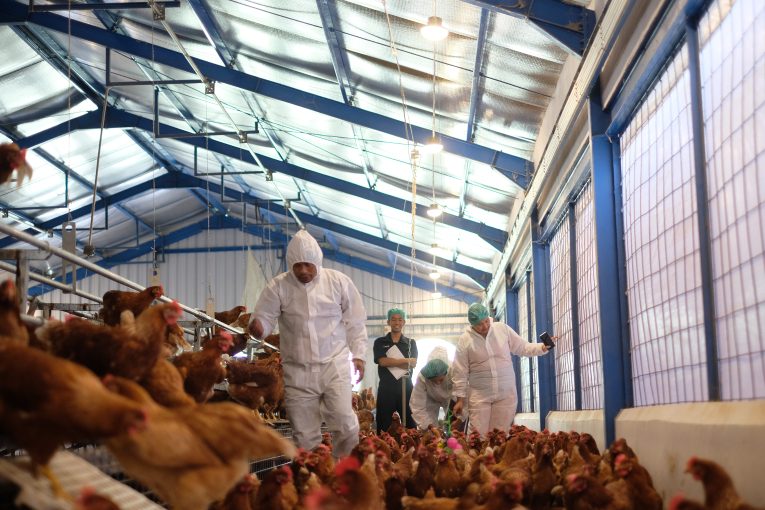
Faculty of Animal Science UGM in collaboration with Global Food Partners and AERES University of Applied Science, The Netherlands, successfully held the International Training on Cage-free Innovation and Welfare Hub for the first time on 9 – 15 July 2023. International Training on Cage-free Innovation and Welfare Hub is a training for academics to learn the practice of cage-free farming system. These pilot cage and training centers are open not only to domestic academics, but also to those from abroad.
This training was attended by 31 academic participants from the Philippines funded by the Southeast Asian Regional Center for Graduate Study and Research in Agriculture (SEARCA). The main objective of this training is to increase the capacity of participants in terms of knowledge about cage-free chicken farming systems. This training is also the right place for participants to hold discussions, transfer knowledge, and share knowledge from experts in the field of animal husbandry and industry as business practitioners.
The series of activities in this training include lectures (theory), practicum, and evaluation (pre-and-post-test). Lecturers and evaluation activities are carried out at the Faculty of Animal Husbandry UGM with material delivered by Lecturers at the Faculty of Animal Husbandry UGM, and strategic partners including Global Food Partners, Vencomatic, and Hato Lighting.
In his opening remarks at the opening of the International Training on Cage-free Innovation and Welfare Hub on Monday, 10 July 2023, the Dean Faculty of Animal Science UGM conveyed the importance of knowledge about cage-free laying hens farming systems. “Cage-free laying hens farming system is still considered a new topic, many of us are not familiar with this practice. Therefore, the Faculty of Animal Husbandry, Gadjah Mada University together with Global Food Partners and AERES University of Applied Science developed an initiative to build a pilot cage and a training center for cage-free laying hens. The hope is that with laying hens whose welfare is fulfilled, they can produce better products,” said Prof. Budi Guntoro.
Senior Program Associate Education and Collective Learning Department of SEARCA, Blessie P. Saez, said that this kind of training provides new insights for academics. “Our goal in participating in this training is to increase the capacity of academics to gain knowledge about cage-free chicken farming systems. This knowledge will later be disseminated to other members so that it can be widely applied,” said Saez. (Secretariat/Prisil)
